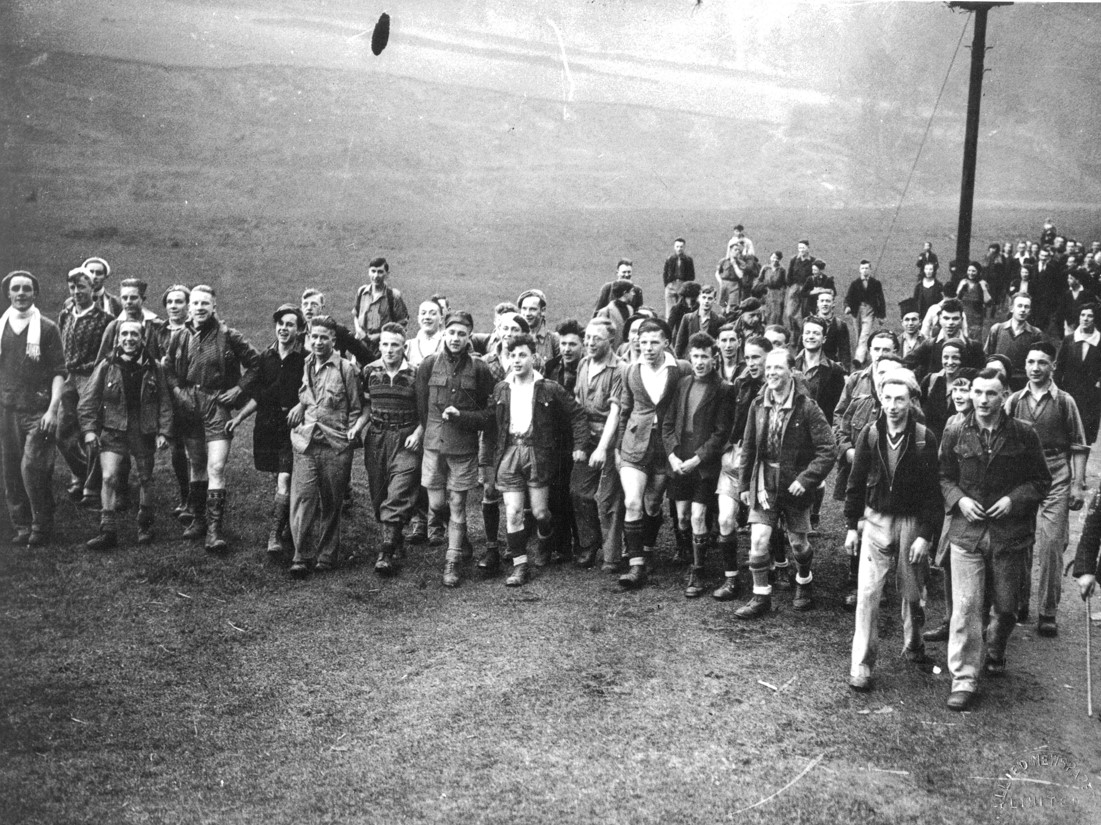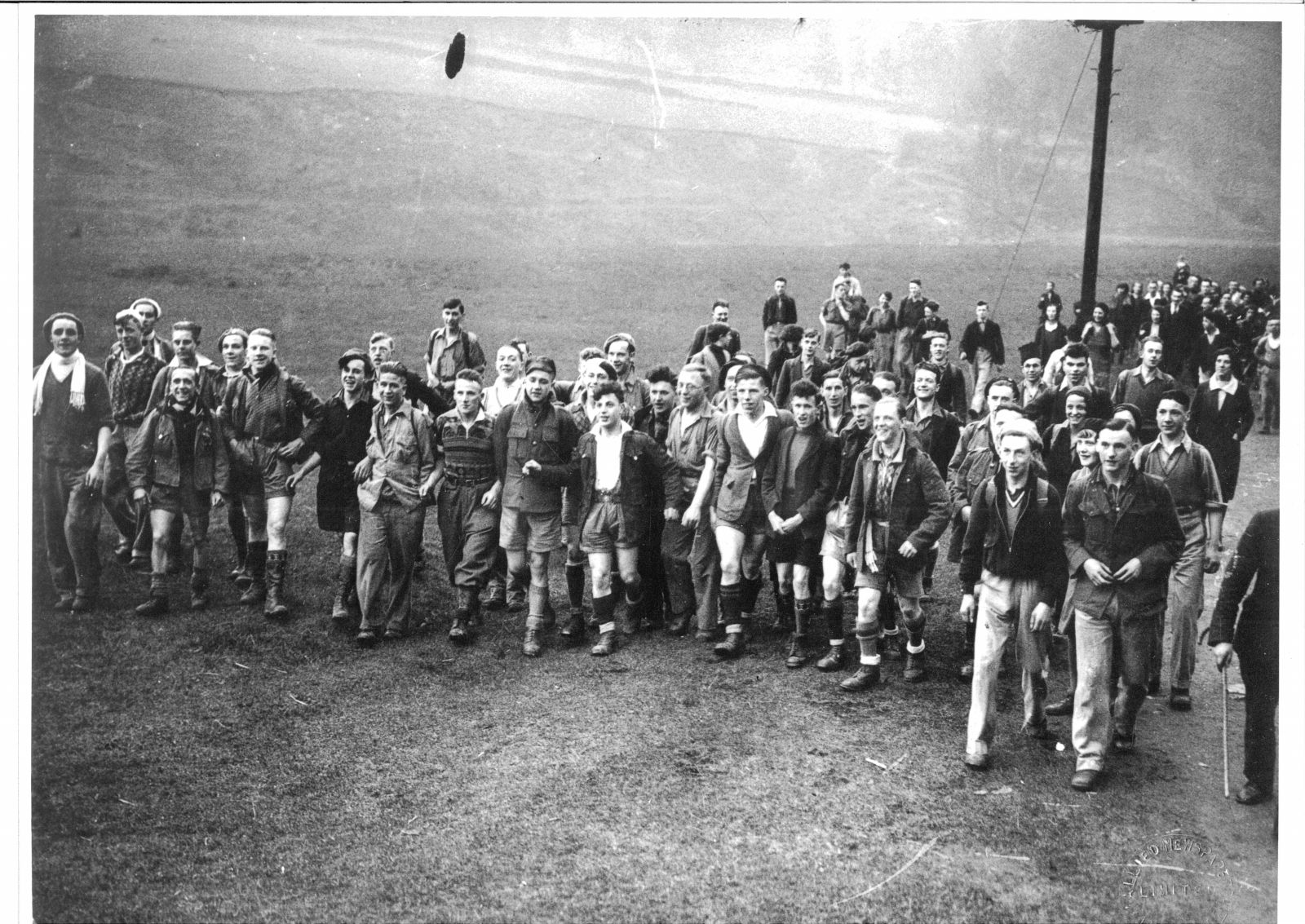
Ninety years since the mass trespass of Kinder Scout
Ninety years ago, a group of countryside campaigners took to Kinder Scout – the highest point in the Peak District – to push for greater access to the outdoors. Their actions contributed to the creation of National Parks but more is needed to ensure equality of access.

Photo: Copyright, and courtesy of, Working Class Movement Library
Writer Sally Robinson wrote a full-length feature for us on this very topic for the latest edition of Viewpoint magazine and here we share an excerpt from this (to read the full article and receive our magazine direct to your doorstep, you can join as a Friend of Campaign for National Parks for £3 a month).
“On 24 April 1932, a group of 400 men and women, led by Benny Rothman, walked across the moorland of the Peak District, which was then the exclusive property of wealthy gamekeepers, in an act of defiance. On approaching the rocky plateau of Kinder Scout, they were confronted by gamekeepers, and scuffles ensued. He was one of six protesters jailed for their actions, but the strict sentences handed out only furthered the trespassers’ cause – fuelling an outpouring of public support. The effects were far-reaching, paving the way for the right to roam movement, the National Parks and Access to the Countryside Act 1949 and the creation of the first National Park – Peak District National Park – in 1951.
“Despite growing interest, financial, personal and cultural barriers mean the countryside is still off-limits to many young people. The cost of transport and kit are often prohibitive. Lack of knowledge and not having anyone to go with can also stop young people taking to the trails. Cultural differences too can be a factor. Statistics show that just 1% of visitors to National Parks are from Black, Asian or Minority Ethnic backgrounds. There are signs of new shoots. Groups such as Wanderlust Women (led by one of our National Parks: New Perspectives bursary holders); and Campaign for National Parks, Ramblers and others are the issue of unequal access up the agenda. But the UK has a long way to go before its open spaces are truly open to all.”
Campaign for National Parks’ Trustee Kate Ashbrook (also a trustee for Ramblers) reflects on the anniversary of the Kinder trespass and where we find ourselves today.
She says: “The 1949 National Parks and Access to the Countryside Act offered only limited access in the form of agreements or orders to be negotiated by local authorities. The Countryside and Rights of Way Act 2000 gave us a right to walk on registered common land and on officially-mapped mountain, moor, heath, and down: this made a big difference in the Yorkshire Dales National Park but little difference on the South Downs, as the mapping was unsatisfactory.
Consequently, the Landscapes Review urged Government to look seriously at whether the levels of open access in protected landscapes were adequate. The Government’s response is a cop out, it proposes nothing new. Instead, Government is undermining access. The sinister Police, Crime, Sentencing and Courts Bill is set to extend trespass as a criminal offence, penalising travelling communities, and catching innocent wild campers in its net. It cracks down on our rights of peaceful protest—such as the Kinder trespass. It is likely to foster a new mood of hostility in the countryside, emboldening landowners to keep us out.
“The ninetieth anniversary of the Kinder Trespass is the moment to galvanise public support for greater access, to build a movement, and to campaign for our freedoms. Will you join us?“
